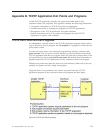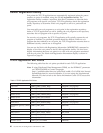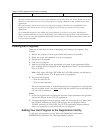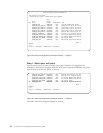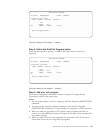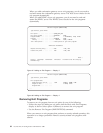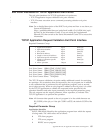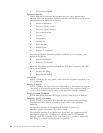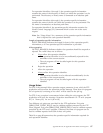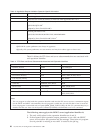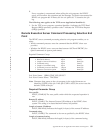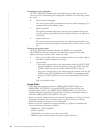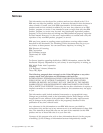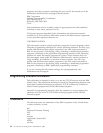
For operation identifiers 1 through 3, the operation-specific information
contains the name of the directory or library on which the operation is to be
performed. The directory or library name is formatted as an absolute path
name.
For operation identifiers 4 through 8, the operation-specific information
contains the name of the file on which the operation is to be performed. The
file name is formatted as an absolute path name.
For operation identifier 9, the operation-specific information contains the
iSeries Control Language (CL) command which is to be run at the user’s
request.
Note: See “Usage Notes” for a summary of the operation-specific information
that is required for each operation identifier.
Length of operation-specific information
INPUT; BINARY(4) Indicates the length (in bytes) of the operation-specific
information, or 0 if no operation-specific information is provided.
Allow operation
OUTPUT; BINARY(4) Indicates whether the operation should be accepted or
rejected. The valid values are as follows:
-1 Never allow this operation identifier:
v This operation identifier is to be unconditionally rejected for the
remainder of the current session.
v The exit program will not be called again for this operation
identifier.
0 Reject the operation
1 Allow the operation
2 Always allow this operation identifier.
v This operation identifier is to be allowed unconditionally for the
remainder of the current session.
v The exit program will not be called again with this operation
identifier.
Usage Notes
For FTP, if the returned Allow operation output parameter is not valid, the FTP
application will not allow the operation and the message “Data from exit program
for exit point &1; is missing or not valid” will be issued to the job log.
For FTP, if any exception is encountered when calling the exit program, the FTP
application will issue the message: Exception encountered for FTP exit program
&1; in library &2; for exit point &3;
Two different exit points are provided for the FTP application. Exit point
QIBM_QTMF_CLIENT_REQ is used to validate requests processed by the FTP
client program. Exit point QIBM_QTMF_SERVER_REQ is used to validate requests
processed by the FTP server program. If desired, the same exit program can be
used to validate requests from both of these exit points.
Table 10 on page 88 summarizes the operation-specific information required for
each operation identifier.
Appendix B. TCP/IP Application Exit Points and Programs 87



